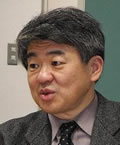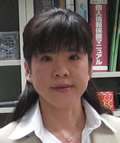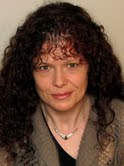 |
Syun Tutiya, Prof. at National Institution for Academic Degrees and University Evaluation
Whither higher education after MOOCs?
The advent of MOOC means another success of technology in higher education more in the sense of the Internet than "educational technology." The Internet has helped the global online learning in higher education shift from the mere provision of electronic platforms for learning to the thorough digitization of learning environment including production, delivery, acquisition, understanding and use of knowledge. The thoroughness of the digitization, however, entails a reconsideration of the place of higher education in society, whose tentative conclusion in this talk is the "unbundling" of the functionalities provided so far by higher education institutions, namely the conceptual and actual independence of campus, faculty, student body, staff, classrooms and libraries from each other in the social context, all of which have constituted a whole body of university. That means disappearance of the university in the true sense of the word university. That said, though, graduates from secondary education will no longer be expected to get gainfully involved in social activities without achieving learning outcomes from higher education. It is time we prepared for the higher education in the era when there are no universities, and this talk explores its possibilities as well as argue against the naivete that would skillfully protect vested interests.
|
 |
Masumi Hori, General Manager, Planning Office, NPO CCC-TIES / Tezukayama Univ.
In the post MOOC era, what are Moodle's prospects?
With the United States sending forth the open education wave that swept across the world, 2012 came to be known as “The Year of the MOOC”. However limitations within that model were quickly identified and there is already a post MOOC movement. In MOOCs of the present, numerous problems are present: scalability of the platform, the high cost of user authentication, low completion rates including learner achievement, lack of appropriate methods for teaching tens of thousands of learners, resistance of those with vested interests and inadequate business models. Since 1996, we at the NPO CCC-TIES, have taken on educational openness in Japan, and over the last year have developed a post MOOC learning platform. CHiLOs (Creative Higher Education Learning Objects) uses Moodle as its backend becoming a portal to ebooks. Our aim is to construct a comprehensive VLE (Virtual Learning Environment) that will bear up even in very large scale courses. The concept we have adopted is the micronization of comprehensive VLEs. Through the process of developing ChiLOs we are coming to see the next generation of learning platform.
|
 |
Adrian Greeve, Moodle core developer and driving force behind the recent alternate name project.
Making Moodle Fit Japan: Alternate Names and Gamification
Moodle is changing to fit Japan. Administrators need flexible ways to display names with multiple alphabets and characters. Students love the gaming atmosphere of learning software and social networks. Thus the new Moodle 2.6 addresses these needs with additional name fields and gamification features. The alternate name fields started as an idea from the members of the Moodle Association of Japan. As a programmer at Moodle Headquarters in Perth, Adrian Greeve took up the challenge of implementing a solution as a personal project and after further encouragement from the Moodle Association of Japan, the project was moved to official sprint status. While the initial additional name fields issue is complete, the project itself is still in the early stages of developing flexible tables and sorting features throughout Moodle. The current implementation is the basic core feature, so additional issues have been created to make alternate name fields even more useful, not only for Japan, but for the Moodle community as a whole. These new displays will be discussed and displayed in this presentation. In addition, the trend toward gamification in courses is now being added through existing and future projects in Moodle. Popular studies have divided people who play games into eight different types. Using these categories as a guide, it is important to try and create a course that encompasses the possible different ways that people will interact with your site. With the recent addition of open badges to Moodle, and the use of other new methods, Adrian will show how it is possible to create a Moodle site that can be more engaging to the student.
|
 |
Helen Foster, Moodle Community Coordinator and spokeswoman for Moodle.
A guide to participating in the Moodle community
Since Moodle 1.0 was released eleven years ago, the community of Moodle users has grown enormously. There are now 70 million users with around 70 thousand sites in 235 countries, and Moodle is being translated into over a hundred languages. Most people know of moodle.org, our Moodle community home, where teachers, administrators and developers come together to discuss Moodle. There are more community sites than just moodle.org though; sites where you can:
*find answers to frequently asked questions about Moodle
*report a problem you come across on your Moodle site and hopefully have it fixed by a developer
*explore new features in Moodle 2.6 and provide feedback
*access research into how Moodle is being used elsewhere in the world
*have your say in Moodle development.
This presentation will cover how you can make the most of the support offered via the Moodle community sites and how you can be involved in determining Moodle's future.
|
 |
Martin Dougiamas, founder and lead developer of Moodle (remote presentation)
Moodle 2.6, 2.7 and the next 1000 years
Martin will talk about recent efforts underway at Moodle HQ, including the recent release of Moodle 2.6, the current work on Moodle 2.7 and the plans for the future as Moodle gains sentience and stages a peaceful takeover of all the world's major cities, gathering resources from neighboring planets and asteroids to build a massive faster-than-light spaceship that tours the galaxy teaching aliens. |
Background Colour
Text Colour
Font Face
Font Size
Image Visibility
Letter Spacing
Line Height
Link Highlight
Font Kerning
Text Alignment
Paragraph Width





